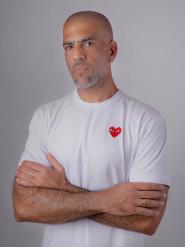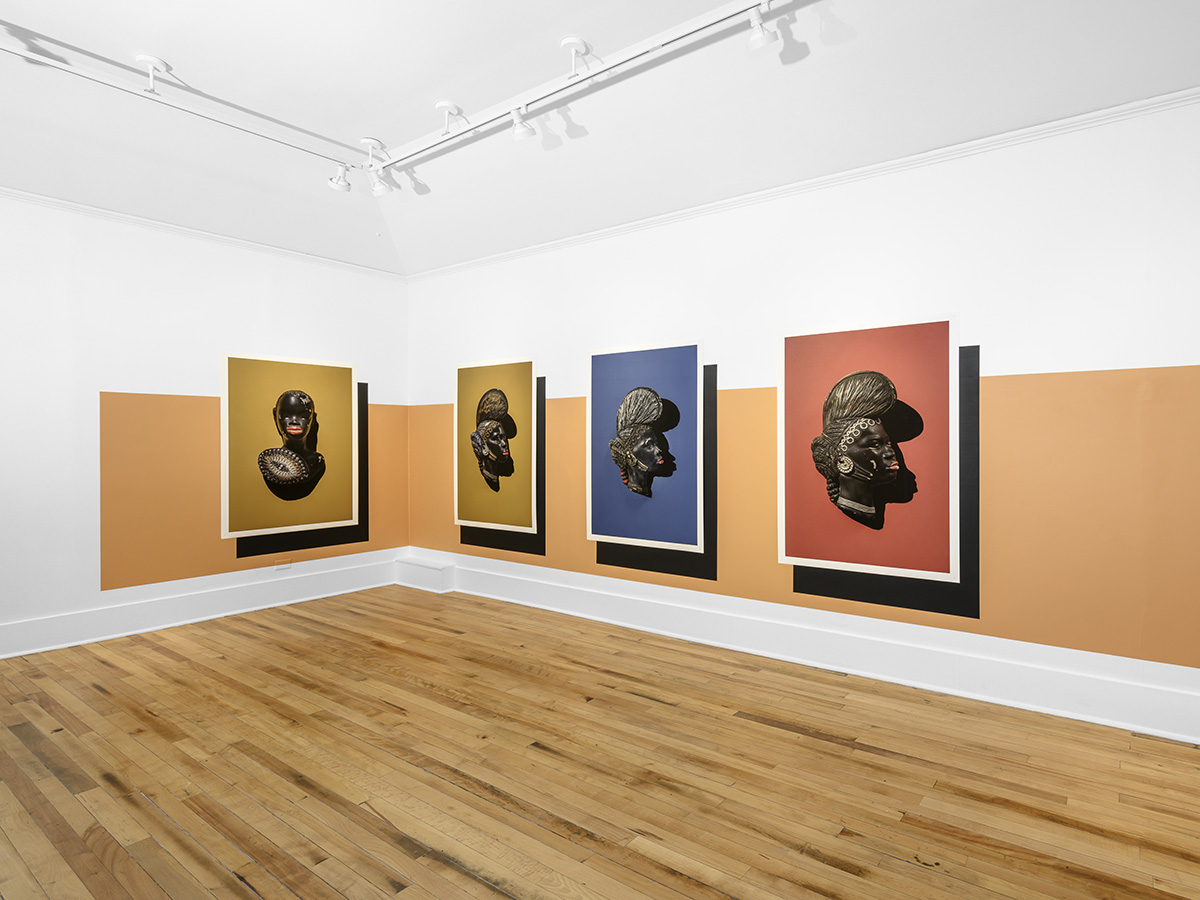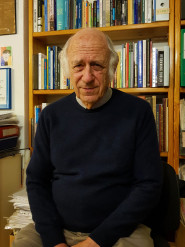Department of Photography
המחלקה לצילום
قسم التصوير الفوتوغرافي

David Adika is a photographer, artist, and Head of the Photography Department at Bezalel Academy of Arts and Design Jerusalem. A senior lecturer in the Department of Photography since 1999, he holds bachelor’s (BFA) and master’s (MFA) degrees from Bezalel.
David Adika’s work focuses on the visual and cultural facets of the local Middle Eastern space as a microcosm that reflects his social and family identity. His photographic corpus contains representations of various still life and portraits, blurring the boundaries between abstract conceptual language and lavish visual accuracy. Adika’s visual research explores intimate yet universal biographies, while the photographs unfold familiar and unfamiliar aspects of everyday life and highlight questions of taste and social status.
Adika has had many solo exhibitions in Israeli and international venues, among them Tel Aviv Museum of Art, the Art Museum in Riga, Latvia, Bologna MUSEI, Casa Morandi, Italy, Herzliya Museum of Contemporary Art, and Braverman Gallery in Tel Aviv. He has won many awards, including the Minister and the Emerging Artist Prizes from the Ministry of Culture and Sports, and the Jack Nailor Award for Photography. His photographs are included in many collections, such as the Israel Museum in Jerusalem, Tel Aviv Museum of Art, Haifa Museum of Art, Petach Tikva Museum of Art, Casa Morandi in Italy, the Knesset and private collections in Israel and abroad.
He lives in Jaffa and works in Jerusalem
Michael Turner, born in the UK, is a practicing architect, professor, and UNESCO Chairholder in Urban Design and Conservation Studies. He has been involved with urban and environmental issues in Israel since establishing the first Municipal Unit in 1974 in Jerusalem.
Turner has been involved with master plans for the Old City of Jerusalem and Bnei Berak and conservation designs for sites as Apollonia, Montfort and Shuni. His recent European research activities include the management of pre-historic sites; the Divided Cities of Jerusalem and Berlin and a tri-national Partnership for Peace offering mechanisms for shared heritage and sustainable peace. Other projects have included Designing Safer Urban Spaces, managing the Bologna Protocol in Israel and currently part of a Marie-Curie doctoral consortium on Heritage. He was an initiator of the National Archive for Art, Architecture and Design and continues to be involved.
Serving on many international professional-academic bodies he has contributed many articles and presentations to academic fora and professional meetings all over the world. He chaired the Israel World Heritage Committee from its inception in 1999 till 2011, and with two decades of contribution to UNESCO, he was elected to the World Heritage Committee in 2005 and during 2007-2008 served as its vice-President. He has accompanied the debate on Historic Urban Landscapes and is special advisor to the World Heritage Centre Director providing international assistance in the fields of urban design and conservation.
Mierle Laderman Ukeles believes art creates freedom and asks whether we can design modes of survival—for a thriving planet, not an entropic one—that don’t crush our personal and civic freedom and silence the individual’s voice.
Her works are in the permanent collections of the Whitney Museum; Guggenheim Museum; the Art Institute of Chicago (promised gift); Migros Museum, Zurich; Wadsworth Athenaeum Museum, Hartford; Smith College Museum, Northampton; and the Jewish Museum, New York City. She is represented by Ronald Feldman Gallery in New York.
She exhibits and lectures internationally and has received honorary doctorates from the Rhode Island School of Design, the Maine College of Art, and in May, 2019, from the School of the Art Institute of Chicago where she gave the Commencement Address.
Two books have recently been published about her work: MIERLE LADERMAN UKELES: MAINTENANCE ART, Prestel, 2016 and SEVEN WORK BALLETS, Sternberg, 2015.



